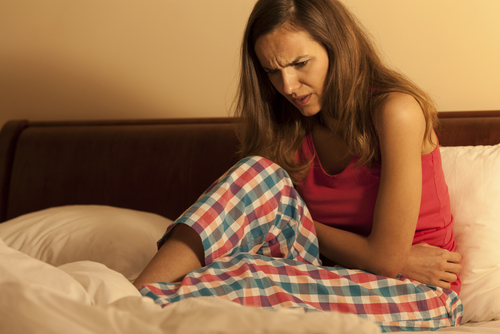
After taking a glimpse at the title, you might think I’m writing about some wild love affair I am having with a man named Endometriosis.
Unfortunately, this is not a romance novel, and endometriosis is not a dreamy businessperson. Cue sighs. It is a real chronic illness, and I am sure many of you by now know I have it.
Endometriosis is exhausting. Even the word itself is exhausting to say. Fatigue is one of the symptoms I experience from this illness. I truly believe it stems from my sleep being different from the sleep of other people. Those with chronic illnesses, I am sure, can vouch for that. I am practically envious of those who can put their head on a pillow, fall asleep and wake up rejuvenated. I’ve forgotten what that even feels like! I am pretty convinced the last amazing sleep I had was before my mother gave birth to me.
Women struggle more with sleep than men do. Research has shown that hormones can affect women’s sleep. But we all struggle at some point with getting a good night’s sleep. Between work worries, money, and family stress, it is a given that every once in a while humans will not get the appropriate amount of sleep they need. Those with chronic illnesses, however, have even more issues that keep them tossing and turning at night.
Here are six endometriosis symptoms that keep me up at night:
Hot flashes
One of the “treatments” offered to help maintain endometriosis is a pill that puts your body into menopause, which would mean experiencing menopausal symptoms. I opted out of that treatment because I did not want to go through that. Yet, here I am, still experiencing menopausal symptoms. Just about every night I wake up in a puddle of sweat. Some nights, I get to where I need to rip off my clothes because I feel closed in. My hormones think it’s funny to attack around 3 a.m., leaving me exhausted come morning.
Pain and discomfort
This one is a hit or miss. Occasionally I truly can make it through the night without much pain. What exactly I ate or did that day is usually the determining factor. When the nighttime pain decides to sweep me off my feet, it is miserable. Between my ribs feeling like they are cracking, pressure on my bottom from my bowels, and sharp pains shooting in many directions in my stomach, I don’t get much shut-eye.
Anxiety
Ah, good old anxiety. No matter how hard I try to turn my mind off, it just does not happen. Thoughts from things that happened years ago leave me bright-eyed and thinking about all the what-ifs. Conversations, things I have done, things I haven’t done and need to do, all keep me anxious at night. Even wondering if I locked the front door and turned off the stove (that I had not even used that day). It crosses my mind.
Insomnia
This, in a way, goes hand in hand with anxiety, but I thought it deserved its own category. Even if my mind is slightly turned off, I toss and turn. The amount of restlessness I experience is ridiculous.
Using the restroom
I can go an entire day without drinking water and still have to get up and pee 50 times at night. My gynecologist told me during one of my ultrasounds that my bladder is incredibly small. Between the pressure from the bloat on my stomach and my “incredibly small” bladder, it makes for an incredibly not-so-fun night.
Migraines
These do not occur every night. I usually wake up with them after not sleeping well. But there are some nights when a migraine will bless me with its presence in the middle of the night. This type of migraine wakes me from a dead sleep. They are so bad that laying down and closing my eyes almost makes them worse. When I have nights like these, you can count on zero sleep and a grouchy person in the morning.
What are some symptoms at night that keep you awake?
***
Note: Endometriosis News is strictly a news and information website about the disease. It does not provide medical advice, diagnosis, or treatment. This content is not intended to be a substitute for professional medical advice, diagnosis, or treatment. Always seek the advice of your physician or other qualified health provider with any questions you may have regarding a medical condition. Never disregard professional medical advice or delay in seeking it because of something you have read on this website. The opinions expressed in this column are not those of Endometriosis News or its parent company, BioNews Services, and are intended to spark discussion about issues pertaining to endometriosis.

